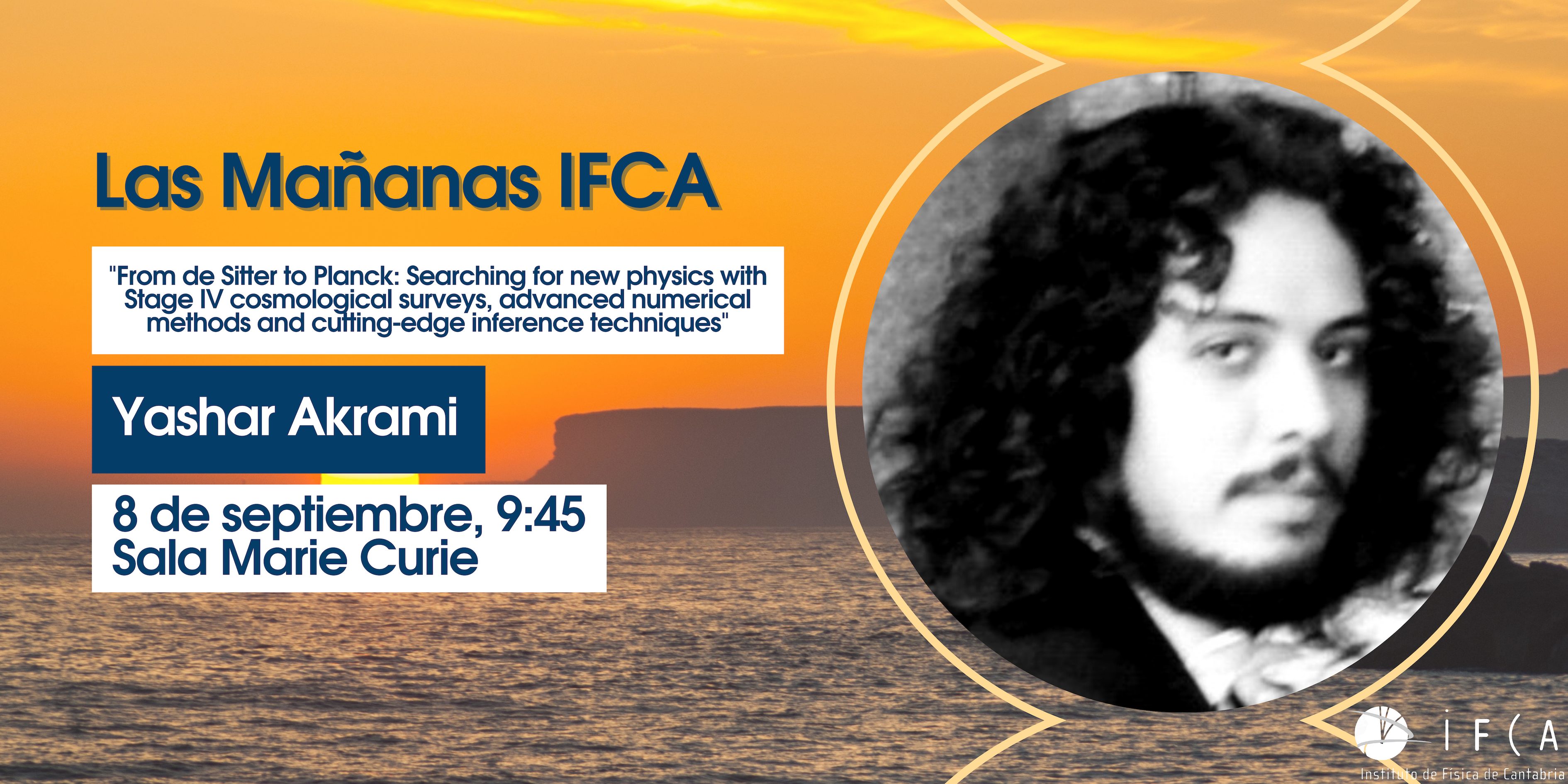Las Mañanas IFCA: Yashar Akrami
Start date: 08/09/2021 09:45
End date: 08/09/2021 11:00

Our current standard models of particle physics and cosmology have provided us with a remarkably deep knowledge of the laws of physics that govern the Universe from the smallest to the largest scales and from the earliest to the latest times, but a plethora of important fundamental problems are yet to be addressed. In the era of precision cosmology and in addition to the rapid development on the theoretical side over the past few decades, various large-scale cosmological collaborations have been formed with the ambitious objective of mapping the entire observable Universe and answering a number of unsolved fundamental questions in cosmology and theoretical physics. Not only has this provided us with detailed understanding of the Universe and its evolution, but it has also made it possible to search for new physics beyond our standard models of particle physics, gravity and cosmology. This new physics is expected to show up at extremely high energies (close to the Planck scale) and/or extremely low energies (the scale of vacuum energy today), the two ends of the spectrum that can be probed by cosmic evolution at earliest and latest times, respectively. Cosmological observations, therefore, have played and will continue to play essential roles in developing fundamental theories, in the quest for understanding the nature of fundamental interactions and answering basic questions about the structure of spacetime.
In this seminar, I will review some of the unsolved fundamental questions, and will explain how they are expected to be answered in the coming years using the wealth of cosmological data that will be provided by a large number of upcoming surveys across all wavelengths in combination with future theoretical developments in cosmology and high energy physics. I will focus on the powerful synergistic science that will be provided by Stage IV cosmological surveys, and will demonstrate this synergy through some of my recent work on tests of models of the early Universe and cosmic acceleration. I will also introduce an ambitious, novel, powerful, synergistic, flexible, fast, efficient, accurate, automated, modular and end-to-end inference machinery, based on a combination of fast numerical simulations, ideas in artificial intelligence, and cutting-edge inference techniques, which is currently being developed and is expected to significantly facilitate searches for new physics beyond the standard frameworks in cosmology and fundamental physics.
Yashar Akrami is a cosmologist, currently holding a Junior Research Chair position at École Normale Supérieure (ENS), Paris, France. He had previously worked at the Lorentz Institute in Leiden, the Netherlands, Heidelberg University in Germany, and University of Oslo in Norway, and received his PhD from the Oskar Klein Centre in Stockholm, Sweden. Akrami's research revolves around the interplay between fundamental physics and cosmological observations and searching for new physics beyond the standard models of cosmology, gravity and particle physics. Despite his strong involvement in construction and development of theoretical models, his current focus is on applying modern concepts and techniques in high-performance computing and data science, in particular state-of-the-art numerical, statistical and inference methods, to theoretical models and cosmological observations to test and understand fundamental theories describing the early Universe, cosmic acceleration, dark matter and gravitational interactions. Akrami has been a member of a number of cosmological and astroparticle physics collaborations such as Planck, Euclid, the SKAO, LiteBIRD, CMB-HD and the Fermi Large Area Telescope. He is particularly the leader of the Euclid Theory Science Working Group’s Work Package on ‘early Universe and initial conditions’ and the coordinator of Euclid’s Theory Key Project on cosmology and fundamental physics beyond standard models.
